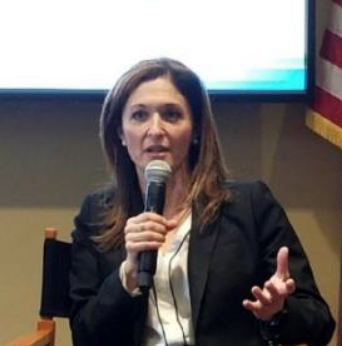
Alex is President & CEO of New England Donor Services, the nonprofit Organ Procurement Organization responsible for coordinating organ donation for transplantation in a six state region. NEDS serves over 200 hospitals, 14 transplant centers and a population of 14 million people. Since Alex stepped into the Executive role in 2015, the number of organs transplanted from donors in the region has increased by 84%. In 2021 NEDS successfully completed the first OPO merger in decades. NEDS has been named as a top 100 Female Led Business by the Boston Globe and the Commonwealth Institute for 5 years in a row (2018-2022). Alex is a recognized thought leader on transplant policy, law and ethics having held numerous leadership positions including Chair of the OPTN Ethics Committee, Chair of the OPTN Policy Oversight Committee, and two appointments to the U.S. Secretary of Health and Human Services, Advisory Committee on Organ Transplantation. Alex has twice served on the UNOS and OPTN Board and currently serves on the Board of the American Society for Reconstructive Transplant as well as the Board of Donate Life America. Alex is an assistant professor at Brown University where she teaches courses in health law and public health leadership. Previously, Alex practiced law at the firm Ropes & Gray. Alex holds an undergraduate degree in bioethics from Brown University and a JD-MPH magna cum laude from Boston University.
Opt in donation policy upheld in court; a case study in judicial support for the donor registration
Alexandra K. Glazier1, Lisa A. Paolillo1.
1Administration, New England Donor Services, Inc., Waltham, MA, United States
Introduction: U.S. Opt-In Donation Policy is supported by the Uniform Anatomical Gift Act (UAGA), the law governing organ donation. The UAGA provides a legal framework for individuals to opt-in as donors prior to death through centralized donor registries. The UAGA recognizes donor registration as a legally binding anatomical gift that cannot be overridden by family and provides a legal basis for the Organ Procurement Organization (OPO) to coordinate donation from medically suitable registered donors even when families object. Legal enforcement of the donor’s affirmative decision to donate is supported by the ethical principles of autonomy and facilitates maximizing the life-saving benefits of the donor’s gift.
Method: The family of this registered donor, declared dead by neurological criteria, filed a Motion in Federal Court on the morning of the scheduled organ recovery to prevent the donor hospital from extubating the donor and the OPO from recovering organs. The family objected to the donation based on concerns about the brain death declaration and their own negative feelings about donation. While the donor was in the OR, but prior to incision, the Court issued a Restraining Order preventing donation from moving forward. Recovery was suspended and the OPO filed an Emergency Motion to Revoke the Restraining Order based on the UAGA provision that donor registration is a legally binding anatomical gift. The Court held an emergency hearing and the OPO presented medical and legal testimony.
Results: The Court denied the family’s request to prevent donation, upheld the donor registration and organ recovery moved forward resulting in four life-saving transplants. See McClean and O’Connor v. New England Donor Services and Boston Medical Center, USDC MA Civil Action No. 22-CV-11003-NMG.
Conclusion: U.S. Opt-In policy and law through the UAGA establishes the individual as the primary decisionmaker with regard to donation and does not allow family to change that decision. Judicial interpretation of the law as exemplified in this case, provides legal certainty for OPOs to move forward over family objections in cases where donors have opted in to the registry, exercising their right to make a legally binding anatomical gift prior to death. The Court recognized the legal and ethical basis of the UAGA, stating that the donor’s decision to opt-in to the donor registry “is final and must be honored.’” As a result, the donating public, donor hospitals OPOs should have high confidence that a valid donor registration will be upheld if challenged. This alignment of law, policy and practice contributes to the U.S. comparative performance internationally as consistently one of the top two highest deceased donation rates worldwide and the highest performing Opt-In country.